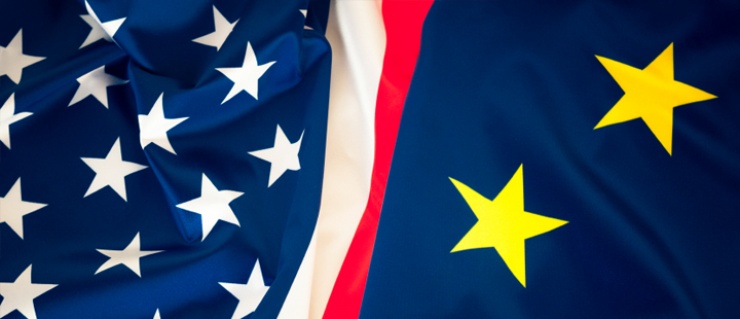
European teachers and students raise concerns about US-EU trade partnership
BRUSSELS – Organisations representing teachers and students from across Europe are expressing concern about the potential impact of a proposed EU-US free trade deal.
Negotiators from the European Union and the United States met in Brussels this week to continue controversial talks on the Transatlantic Trade and Investment Partnership (TTIP). The goal of the TTIP is, according to the European Union, to reduce and eliminate tariff and regulatory barriers to trade and investment.
“Given the broad scope and high level of ambition of the TTIP, we are worried about how the deal could negatively affect education,” says Maroš Korman, member of the Executive Committee of European Students Union (ESU). “Without effective protections and exemptions from the rules of the TTIP, the education sector could be exposed to increased pressures of commercialisation and privatisation.”
Teachers’ perspectives on the TTIP
Fred van Leeuwen, general secretary of Education International (EI) representing more than 30 million teachers worldwide, urged negotiators to ensure that education is fully excluded from the talks.
“We have been told that public education will not be covered by the TTIP,” van Leeuwen said. “However, proposed exemptions for education services are extremely weak, and private education services may in fact be included. The problem is that in many jurisdictions the line between what is public and what is private education is blurring so that any exemption for public education may prove to be inadequate.”
According to van Leeuwen, the only way to fully protect education is through a complete carve-out from the TTIP, as EU member states have demanded in the case of the audio-visual sector.
Failure to exclude education from the TTIP could lead to an influx of U.S.-based for-profit companies into Europe, and under a controversial investor-state dispute resolution process grant those companies the right to sue governments for any measure that might affect their earnings.
A blank cheque for U.S. companies
As the University and College Union of the United Kingdom (UCU) points out: “The TTIP is a blank cheque for U.S. for-profit companies. In 2011 and 2012, U.S. for-profit colleges sued the U.S. Government over the publication of a report that was highly critical of for-profit companies. Then the following year, they sued the government again over its attempts to introduce new regulations and protection for students. In July 2012, they won a case to strike out the regulation that would have damaged their profits.”
Both EI and ESU say they and their member organisations will continue to monitor talks and lobby the European Commission, the European Parliament and member states of the EU to formally exclude both private and public education services from the scope of TTIP.
— END —
For more information, please contact:
Rok Primozic, ESU’s Chairperson: +32/479.126.390 // rok@esu-online.org or Robert Hlynur Baldursson, ESU Communications Manager: +32/473.669.894 // robert@esu-online.org

The European Students’ Union, headquartered in Brussels, is the umbrella organisation of 47 national unions of students from 39 European countries. ESU represents and promotes the educational, social, economical and cultural interests of students at the European level. Through its member unions, ESU represents over 11 million students in Europe. To find out more about ESU, follow us on Twitter @ESUtwt, check out or Facebook page or visit www.esu-online.org. ESU celebrates its 30th anniversary in 2012.
